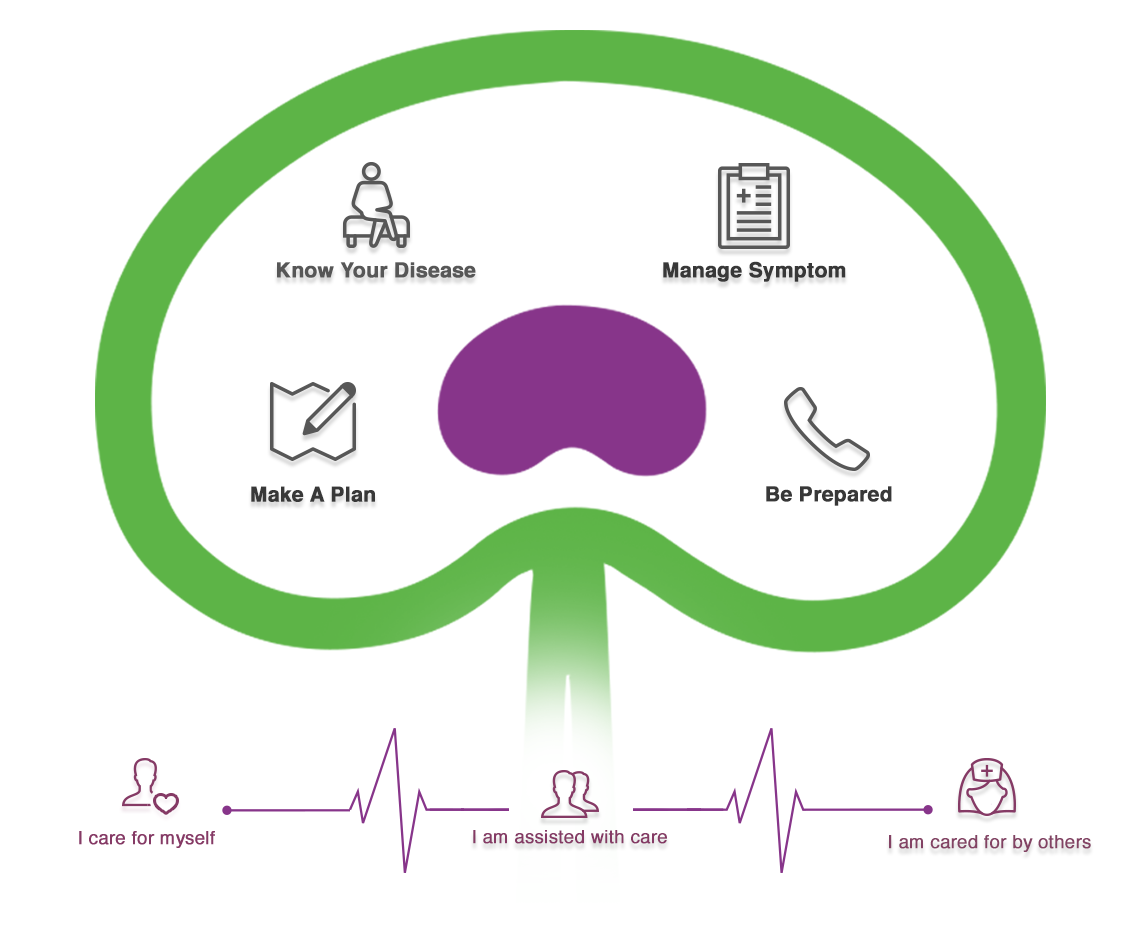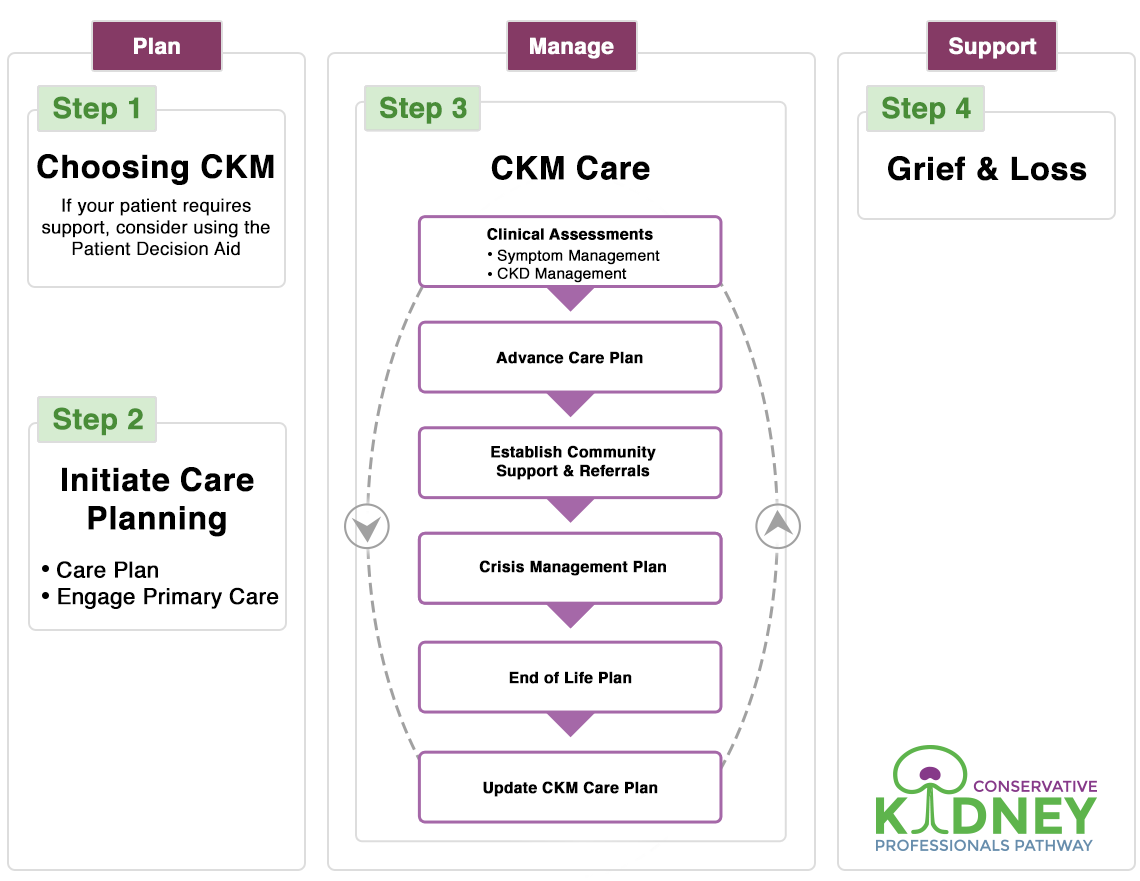Care Teams
If you’ve been going to a chronic kidney disease clinic, you might keep going to this clinic and see your nephrology team. In this case, the kidney clinic will help coordinate your care together with your family doctor. Some people with kidney disease don’t go to a kidney clinic, instead their kidney care is managed by a family doctor or nurse practitioner (NP).
Your healthcare team may include dietitians, social workers, pharmacists, spiritual health practitioners, nurses, NPs, and doctors. They’ll respect your values, choices, and independence.
A nurse is often your first contact for concerns and can refer you to other members of the healthcare team. If you go to a kidney clinic, you’ll have a nurse as your case manager whom you can call for help and information. You may have a Home Care nurse or case manager who sees you at home and works with your health care team.
Nurse Practitioners
Nurse Practitioners (NP) are nurses with extra training. Nurse practitioners can make full assessments, and diagnose and manage symptoms. They can order tests, do procedures, and prescribe medicine.
Doctors
You may have a kidney doctor (nephrologist) who will see you to help your kidneys work the best they can and to help manage symptoms. If you don’t go to a kidney clinic, your family doctor will likely manage your kidney care and consult with a kidney doctor if needed.
Dietitians
Your dietitian will help with your food concerns. The kidney diet is not always easy to follow and your dietitian can help you make good food choices to help manage your kidney symptoms.
Social Workers
Social workers can help you and your family cope with stress and connect you to services that can help with finances, housing, transportation, and how you feel.
Pharmacists
Pharmacists help you manage your medicine and make sure what you’re taking is safe for your kidneys.
Spiritual Health Practitioners
Spiritual health practitioners offer spiritual and emotional support to people and their families/friends.
Having a connection with healthcare professionals in the community can make a big difference in your care. We encourage all patients and families to learn about Continuing Care Services (such as home care).
Anyone can make referrals to Continuing Care — you can refer yourself or your family member. Depending on where you are, your healthcare professional may recommend palliative home care. To learn more about how Continuing Care can support you (both now and in the future), please talk to your healthcare provider or see the information below.
To contact Continuing Care Access:
North Zone: 1-855-371-4122Edmonton Zone: 780-496-1300
Central Zone: 1-855-371-4122
Calgary Zone: 403-943-1920
South Zone: 1-866-388-6380
You can contact Continuing Care services to find out about these options, which might include:
Supportive Living, which offers many different supports including meals, housekeeping, and recreation services. People may need Supportive Living because of health or cognitive concerns. Home Care resources are available on site 24/7.
Long Term Care, which is for people with complex health problems, including difficulties with thinking, or dementia.
Hospice/Palliative Care, which is for people who are closer to the end of their lives. In Alberta, there are many options for this type of care (e.g., your home, at a hospital, a continuing care centre, a hospice). If it’s right for you and what you want, you may be referred to a hospice/palliative care unit. Hospice care can usually be arranged within a few days. These units care for people in their last weeks to months of life.
Working closely with your primary care provider, Continuing Care will assess your wishes, needs, and your medical problem(s). After this, they can help you transition to place where you’ll be cared for.
Additional Resources:
Specialized Palliative Care Consult services are available across the province. People do not need to be close to dying in order to benefit from palliative care. Palliative care professionals can help with planning, symptom management, and more.
Your healthcare professional may consider asking a palliative consultant to help guide your care at any time if you:
- have been in the hospital or have needed to call EMS many times
- have symptoms that are not well controlled
- need care in a hospice or palliative care unit



